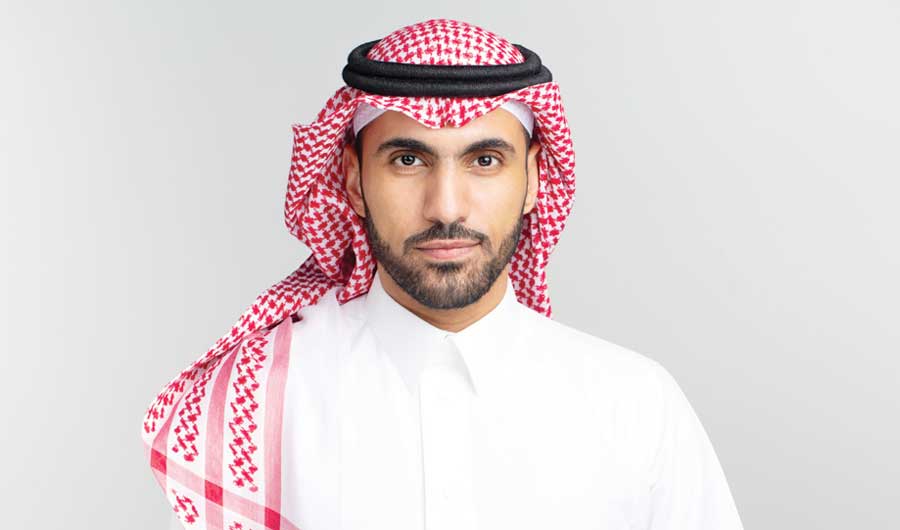RIYADH: Coding, the computer language used to develop apps, software and websites, has become an important STEM-based activity that is paving the way for tech careers in Saudi Arabia.
Everyone uses a computer of some kind or another. Laptops, tablets, smartphones and, in some cases, cars, refrigerators, even ovens. The most significant technological advancements of the past century have all happened thanks to computers and, more importantly, the people who make them work.
In the last few years, the recruiting industry has witnessed big changes as the economy and technological advances have altered the way many companies hire in the Kingdom.
According to LinkedIn, the top 10 most in-demand job skills for the past few years have all included some form of coding. This year’s list included cloud computing, Artificial Intelligence (AI), and UX (User Experience) design prompting Saudis to eye careers in tech.
Saleh Alzaid, a cloud computing consultant and board member of the Saudi Cloud Computing Association, set out the importance of learning to code, why the skill was in such high demand, and where beginners could start looking in order to improve their coding skills.
“Computers are everywhere in today’s life,” he told Arab News. “We deal with all sorts of software daily, from our mobile phones to our laptops, to smart TVs and gaming consoles. Almost every piece of hardware we own today has a software component. Even our cars are embedded with their own software.”
The widespread and daily use of computers in almost every area of Saudis’ professional and personal lives makes the skill of being able to “communicate” with computers even more valuable, with more and more applications for coding being realized everyday.
“Year after year, more jobs for coders are created,” said Alzaid. “Nearly every company today needs someone in IT, not just for coding but also to deal with software created by a coder. System analysts, app developers, website designers, game developers, data engineers, analysts, security experts, the list goes on … all these professions need a level of knowledge in coding.”
He said that coding was the backbone of anything computer-related. Creating software, apps, websites, or games all required knowledge of programming languages.
“A programming language is close to human spoken language and can be translated by the computer to enable it to follow instructions on the hardware. And, in this technological era, coding is crucial to unlocking the potential of the hardware we use. Coding creates that gate between us and the hardware we use through the software being created by coders.” Coding languages are many and varied - just like languages in real life - with different applications, strengths and weaknesses for each one. Mastering one does not necessarily mean mastering all of them. For example, an experienced JavaScript user may struggle with Python, a general purpose coding language that differs from JavaScript and includes back end development, software development, data science and writing system scripts.

Additionally, casual coders will never quite be at the level of professional coders who have spent years studying coding and obtaining degrees. But Alzaid said this disparity should not discourage people from trying out coding.
A programming language is close to human spoken language and can be translated by the computer to enable it to follow instructions on the hardware.
Saleh Alzaid, Member of the Saudi Cloud Computing Association
“For simple software, coding can definitely be a hobby. Things like designing a website or creating simple apps or small games. But for complicated software, like social media systems, e-commerce solutions, or big-data analytics, a level of devotion is needed. Programming languages evolve with new concepts and tools, and require continuous learning and application.”
He said that learning to code, unlike learning a spoken or written language, did not have the same first- and second-language acquisition restrictions and that anyone could start learning to code at any age.
“I don’t believe there’s a certain optimal age to learn coding. Coding can be taught to kids and adults, both in simple formats for simple applications. Certain domains for advanced software, like building artificial intelligence models for example, require deep knowledge in statistics and mathematical equations. But for simple websites or apps, coding can be taught to anybody.”
He recommended websites such as Pluralsight, Coursera, or Microsoft Learn for those interested in learning to code for professional purposes.
For casual learners, he recommended watching videos on YouTube in order to grasp the basics. And for kids, he suggested apps that could teach them the concepts of coding through interactive learning and games such as CodeMonkey, Kodu, Tynker, and CodeSpark Academy.
Alzaid believed that demand would only increase, especially as people became more reliant on computers and technology to carry out basic tasks and make their lives easier.
“Coding is a profession that will keep evolving and expanding, and demand for it in the job market will only keep increasing. There will always be more hardware that requires more software to work with.”


















